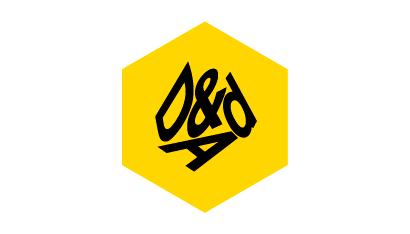How to get your first book published: Top publishing tips
Want to publish a book? Discover tips on self-publication, the process of finding a literary agent and submitting a book proposal.

Learning how to get a book published can be as intimidating as writing the book itself. That said, first-time writers have more opportunities than ever to get published as the industry evolves toward digital publishing alternatives in addition to traditional publication.
You’ve got your concept, your characters, and your subject, and you know how your book will be structured – now you need to get your book published. Although hundreds of thousands of new titles are produced each year, there is greater competition than ever before to get published – but it’s not impossible.
In this article, we’ll show you how you can increase your chances of landing a book deal and getting your book published. We’ll cover self-publishing, how to find a literary agent, how to write a proposal for a book, and how to submit a book to publishers.
Should I self-publish?
There are two alternatives for new authors looking to publish their first fiction or nonfiction book. One option is to sign a standard publishing contract: a literary agent usually facilitates such an agreement, which provides the publisher exclusive rights to print and distribute the work. An author collaborates with a publishing house editor to complete a set number of revisions. The publishing house has the last say on whether or not the novel is published.
However, many first-time authors prefer to explore the option of self-publishing. Self-published authors avoid using a publishing house and instead self-publish their books. They achieve this by offering the book as a print-on-demand option, an ebook, an audiobook, or by printing and selling physical copies of the book.




4 ways to self-publish your first book
Indie authors now have more tools than ever to bring their work in front of readers. However, this carries the risk of your book making it to print with glaring errors and inconsistencies.
Before going to print, get a professional’s judgement on the book’s production values (printing, artwork, typesetting, and, most importantly, cover design). Friends and family will provide input, but it may not be candid or honest.
A bookshop manager or buyer will be able to tell you right away if your book will appeal to a broad audience. The dialogue may not be pleasant, but that bookselling experience could mean the difference between a viable book design and one that fails to sell.
If you can, get an editor to look over your book, too. Even if you have many years’ experience writing, it’s easy to miss obvious errors when you’ve become heavily invested in a project. Authors can become “too close” to their work and overlook major structural and grammatical flaws. Find out more about writing and editing in our online course from the University of Michigan.
1. Print-on-demand
Print-on-demand, in which copies of a book are only printed when someone orders one, is perhaps the least risky publishing approach. For print-on-demand novels, first-time fiction writers frequently turn to companies like Amazon.
2. E-book publication
It’s even easier to supply digital copies of a book on-demand because it doesn’t require any paper or printing equipment. Again, Amazon is the most popular choice for e-book publication, as its Kindle device is one of the world’s most popular e-readers. Consult Amazon’s own guide for information on how to self-publish a book on Amazon.
3. Self-printing
You can self-publish books ahead of time and hope that they will sell. If your book becomes popular, you will be able to sell all of your self-published copies. If it doesn’t find an audience, you can end yourself with stacks of your book collecting dust in your house. Self-printing and vanity publishing are closely related – see below for more on the latter.
4. Audiobook publication
Novels are widely consumed as audiobooks by today’s audiences. Audiobooks, like printed novels, can be published by a regular publisher or by the author themselves. You’ll need a narrator, who may be asked to record dozens of hours of written narration. While a novel option, it can become expensive as you’ll need to pay the narrator for their time, which can be many hours.
What is vanity publishing and why should you avoid it?
Vanity publishing is a common scam in the publishing world. A vanity press publisher charges exorbitant fees for services such as cover design, formatting, editing, and marketing.
A vanity press outsources this work to the lowest bidder and takes the profits for themselves, leaving the author with a low-quality book and no way to sell it.
When it comes to vanity presses and the fraudulent vanity “publishers” they represent, the old adage “you get what you pay for” does not apply. You pay thousands or even tens of thousands of pounds but leave with no return on investment.
Getting your book published through the traditional process
The majority of books read by huge audiences are produced through the traditional publishing method; practically book on national bestseller lists was published by a traditional publishing house. To get a publishing deal, you don’t have to be a bestselling novelist; even authors with modest book sales can obtain deals with major publishing houses such as Bloomsbury, Random House, Penguin and more.
Literary agents are involved in the traditional publishing process. Agents serve as the publishing industry’s gatekeepers; a great book can reach the world’s most prominent publishers with the help of a well-connected agent. Although publishers have been known to sign deals with writers without agents, the procedure is much more difficult.
Famous authors are routinely offered multi-book publishing deals with upfront monetary advances, giving them a home for works that don’t yet exist. Unsolicited manuscripts can also be accepted by publishers if the authors follow the correct procedures. Here are some pointers on how to get your book published the traditional way.
Whether you want to publish a children’s book, a romance novel or a science-fiction epic, the tips below will help you get started.
How to find an editor
A couple of errors won’t imperil your career, but a slew of them will make you appear unprofessional. Remember that you may only have one chance to impress a publisher or literary agency, so make sure they see your best work.
Whether you plan to self-publish your book or submit your manuscript to a major publishing house, it’s critical that your work is polished and ready for others to read. Depending on the type of editing you require – developmental editing requires a big-picture approach, whereas line editing requires a closer reading – a book editor will go through your work in depth. Editors look for methods to improve your work on both a technical and creative level.
One of the first things to consider when hiring a book editor is their experience, so request a sample of their work. Many experienced editors have worked for traditional publishers; ask how many years of in-house editing experience they have.
When you’re ready to send your book to a publisher, an editor will have an inside track on what’s hot and who to approach. Examine their testimonies and obtain employment references. It’s a good sign if they’ve worked on a best-selling book or have many years experience with a well-respected publishing house.
How to find your book’s target audience
A writer’s market for publishing houses is determined by the market for their work – meaning, the possible audience for their book. Certain genres are more popular in the publishing sector than others.
Children’s books, young adult novels, science fiction, fantasy, thrillers, and romance novels are all popular genres of literary fiction. A great book can be written in any genre, but these are the ones that have the most consistent audiences. Having a creative mindset can help you create something imaginative.
Keep your audience in mind as your write your proposal and first chapters, and don’t deviate too much from your theme for your first book. If your book is a science fiction novel, don’t put a love scene in the first chapter.
How to find a literary agent
Before you jump in and contact every publisher you’ve ever heard of, think about whether you’d be better served by the representation of a literary agency.
While having an agent does not ensure that your work will be published, it does greatly help. Most agents and agencies have websites that detail their preferences as well as submission criteria. A list of all working agents is also included in the annual Writer’s Market publication.
A literary agent works on behalf of the authors they represent. A professional agent will help you discover the ideal home for your work, sell you and your work to the proper publisher, negotiate a fair deal for you, and, most importantly, provide much-needed advice and support throughout the process.
The agent, or agency, earns all of its money from commissions on the sales of their clients’ work, charging around 15% commission on UK sales and 20% commission on US sales.
Some authors claim that finding an agency is more difficult than finding a publisher. An agency’s ability to produce money for the client, and therefore for themselves, is entirely dependent on the viability of the work. As a result, an agent will only take you on if they are convinced that there is a market for your book.
How to write a proposal for a book
Most literary agencies will not accept a cold call that includes an entire novel. Here are some things they are likely to ask for: 1-5 sample chapters, a query letter, and a 1-2 page overview of the complete novel.
All of these elements comprise a book proposal. However, as explained above, make sure that you check the agency’s individual websites and see whether they have listed specific criteria. You can find a book proposal template online, which will help you with your proposal.
How to submit a book to publishers
If you don’t have an agency, you can submit straight to a publisher, but your chances of being accepted are minimal. On the other hand, publishers will almost always examine a work presented via a reputable literary agent.
The exception is when you’re submitting a specialised novel to a niche publishing business, or if you have a personal connection to an editor who might be willing to read your work because of that relationship.
Every year or so, you’ll see a news story about an author plucked from the slush pile and given a three-book deal and a large advance. And while it is true that it does happen, you must be either extremely determined or extremely lucky!
It is critical that you begin by conducting market research to boost your chances. Publishing is a commercial enterprise, and a publisher must be convinced that any book they choose to publish has a viable market.
Locate an appropriate publisher. First and foremost, consider who might be a good match for you and your book. Look through the titles at your local bookstore to find out who publishes books similar to yours; if you’ve written a crime thriller, find out which publishers specialise in the genre. If you’ve written a historical biography, look through the history section to see who is publishing in this topic.
Don’t just consider the household names: independent publishers like Tindall Street, Quercus and Canongate have all published works that have gone on to become bestsellers and win literary honours.
When you’ve selected which publisher is ideal for you, find out if they take submissions, who to submit them to, and what format to send them in. Call or email to find out who is the ideal person to receive your work.
Presentation is crucial, so send your material to the publishers in the most relevant format. They’ll most likely request the first two or three chapters as well as a summary of the entire book. In your proposal, make sure you explain why your book is worth publishing and why they are the best publisher for your book.
Final thoughts
Getting a book published is challenging but not impossible. Submitting a book to a traditional publisher via a literary agent is still probably the most viable method – but with the rise of self-publishing methods, that may change in the future. To hone your craft and work towards publishing your first novel, check out our online writing courses.










